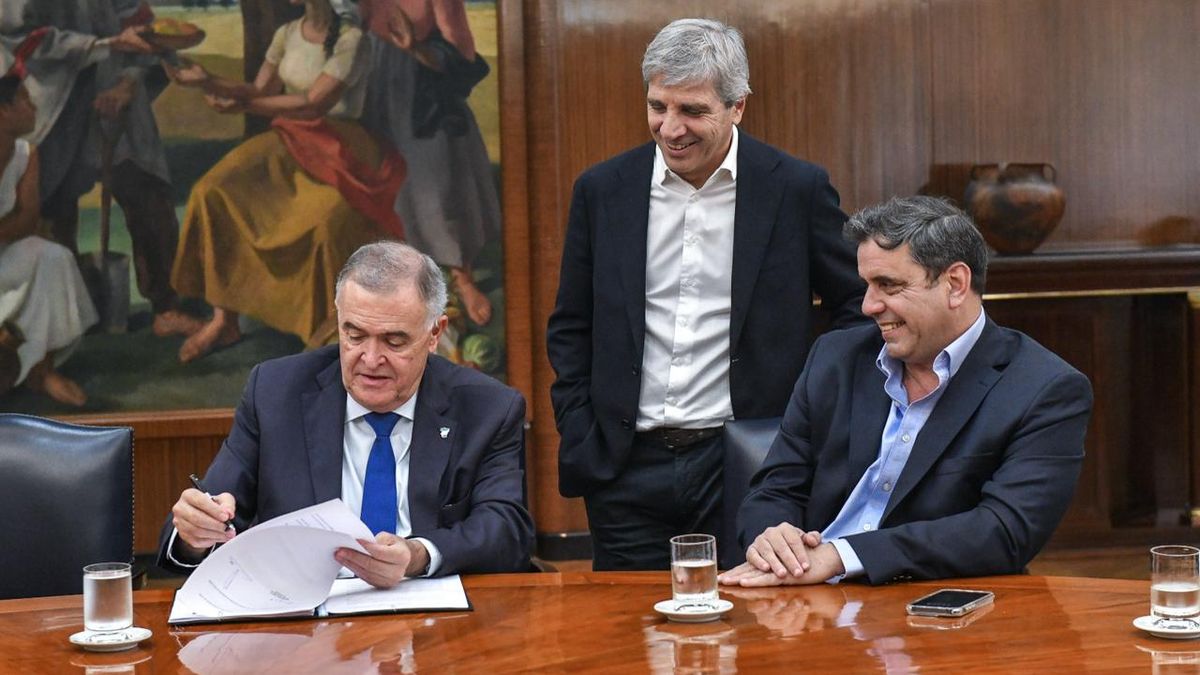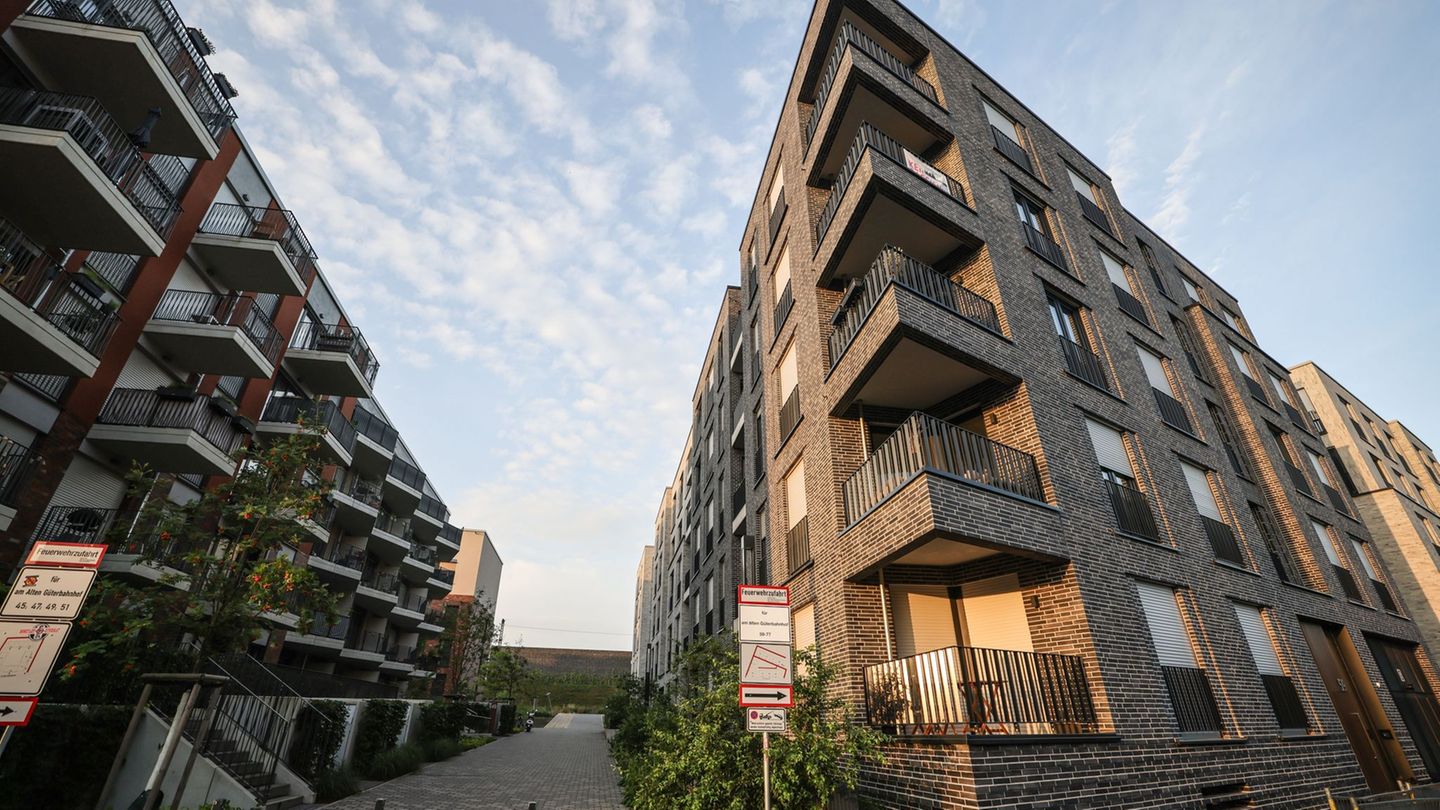Governors Raúl Jalil (Catamarca), Osvaldo Jaldo (Tucumán), Sergio Ziliotto (La Pampa), Leandro Zdero (Chaco) and Rogelio Frigerio (Entre Ríos) passed by the Ministry of Economy of the Nation this Friday to sign the Letters of intent to voluntarily adhere to the Extinction of Reciprocal Obligations Regime which, strictly speaking, launches a dialogue table so that the Nation cancels the debts it has with each district in exchange for the delivery of lands, companies, routes and other assets. “A consolation prize in the absence of Budget 2025,” described an official of one of the northern leaders.
The minutes were signed by the provincial heads, the Minister of Economy, Luis Caputo; and the vice chief of the Interior Cabinet, Lisandro Catalán. The latter was responsible for announcing the implementation of the regime that, at the beginning, aroused the interest of Jalil and his Salta counterpart. Gustavo Saenz so that Belgrano Cargas, which the Government anticipated was subject to privatization, becomes managed by an alliance of provinces in exchange for debts of the Nation, as Ámbito pointed out.
In the case of Córdoba, whose governor Martin Llaryora was authorized by the Legislature this last Thursday the 12th to join the regime, it is not ruled out that the Argentine Aircraft Factory (Fadea) could be provincialized with this system. To complete this Friday’s step, The legislative powers of each province had to approve projects to empower the governors to sign the minutes.
Embed – https://publish.twitter.com/oembed?url=https://x.com/LuisCaputoAR/status/1867632403931705385&partner=&hide_thread=false
The creation of this “clean slate” modality occurred while the Casa Rosada had entered into negotiations with the dialogue leaders for the 2025 Budget. The provincial heads were interested in having the unfulfilled works agreements assumed with the Chief of Staff, Guillermo Francos, before the approval of the Base Law, be included in the budget forms. It couldn’t be. The delays and lack of agreements opened the door for the Casa Rosada to decide not to include the “law of laws” even in a tentative list of a call for extraordinary sessions, which has not materialized until now.
By being left empty-handed and the extension for the second consecutive year of the 2023 Budget, which will force the provincial heads to have to negotiate with the Casa Rosada month by month the transfer of federal funds, “The Extinction of Reciprocal Obligations Regime became a lifesaver“, another trusted man of one of the governors explained to this medium. Each one is seeing what there is in each district that may be of interest so that it passes from the Nation to their province, “but that does not solve the cash problems, for which fresh funds are needed,” this Peronist official warned.
Embed – https://publish.twitter.com/oembed?url=https://x.com/ZiliottoSergio/status/1867579872748449862&partner=&hide_thread=false
The debts
In general, The provinces claim debts for withholding tax on liquid fuels that the Nation makes but does not transfer, items for public works – for agreements that were signed and breached -, the payment of the Fiscal Consensus Compensating Fund and the Trust funds for Provincial Development , Regional Infrastructure and the National Teacher Incentive Fund, among others. But, on the other hand, since January the Nation cut off fund transfers to the 13 provinces that have non-transferred pension funds. In the case of Córdoba alone, it is a debt of $450,000 million, which is why this district has already appealed to the Supreme Court of Justice of the Nation. These leaders are reluctant to negotiate an exchange for this default because they want cash and cash to cover the gap that they cover with their own funds.
The Secretary of the Treasury also participated in the Economic meetings with the governors, Carlos Guberman; the secretary of Provinces and Municipalities, Javier Milano; and the Undersecretary of Provincial Fiscal Coordination, Valeria Sanchez. In the next batch of signatures would be the provincial heads of Neuquén, Corrientes, Chubut, Jujuy, Misiones, Salta, Santa Cruz and Córdoba.
The regime was created by decree 969/2024, the content of which states that “it allows the reciprocal obligations between jurisdictions to be extinguished, totally or partially, thus allowing for the definitive clean-up of financial situations to be implemented.” “It allows you to agree on compensations, conciliations, transactions, recognitions, referrals and any other operation that tends to determine and cancel reciprocal debts and/or credits between the parties. In this sense, “The Regime will contribute to ordering the financial situation between jurisdictions, settling debts from previous years and advancing a new federal fiscal relationship.”stood out in its recitals.
Source: Ambito




